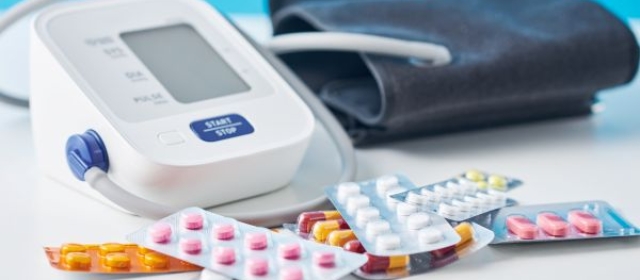
All News
Upcoming Events

“Death Grip Syndrome”, as it is commonly referred to, is a slang term referring to the overall desensitization of the penis due to frequent and rigorous masturbation, often with a lot of pressure being placed on the penis. Men in online communities often share they feel as though their penis is “broken”, “dead”. They have also expressed they have a hard time orgasming or feeling sensation and pleasure from masturbation or other sexual activity. However, this situation is not currently recognized in the medical community, resulting in a lack of research or resources.

Multiple sclerosis (MS) is categorized as a progressive chronic inflammatory disorder that negatively impacts both physical and mental health, with around 2.8 million individuals affected globally. It has been found that sexual dysfunction occurs in males with MS (MwMS) nine times more frequently than with any other neurological disease. In fact, many MwMS see sexual dysfunction as the most detrimental part of their disease, which then negatively impacts other aspects of their health and quality of life. It has been suggested in previous research that a combination of psychological, physical, and social factors may contribute to the onset of sexual dysfunction. Namely, the presence of disability, depression, anxiety, fatigue, and hormonal imbalances can cause erectile dysfunction.

Gender dysphoria, according to the Diagnostic and Statistical Manual of Mental Disorders, is defined as a “marked incongruence between a person's experienced or expressed gender and the one they were assigned at birth.” While not every transgender or gender diverse individual may experience gender dysphoria, those who do may have difficulties in public spaces, such as work or school, due to social norms and behavioral expectations associated with their assigned sex. Overarching effects of gender dysphoria can include anxiety, depression, eating disorders, and relationship problems.

Beta blockers, most commonly used for heart problems and hypertension (low blood pressure), have notoriously been problematic for the erectile function of biological males, often increasing the risk of erectile dysfunction (ED), which is defined as the inability to maintain an erection long enough to engage in a satisfactory sexual experience and is a common issue in male sexual medicine.

The World Health Organization defines sexual health as a state of whole body and mind well-being regarding sexuality and sexual relationships, which should be approached with positivity and respect as well as have the possibility of more pleasurable and safe sexual experiences free of coercion, discrimination, and violence. This entails:

Introduction
Erectile dysfunction (ED) is one of the most common sexual dysfunctions in biological males, affecting a significant population and usually increasing in prevalence with age. Previous studies have shown that physical activity can help with erectile function; aerobic exercises and activities can enhance vascular function, reduce inflammation, and improve blood flow, which all contribute to good erectile function. However, aerobic activities are not accessible for every individual and may be more difficult to do, especially as men age. Walking is accessible, simple, and free, making it a good exercise to incorporate into daily routines and potentially improve erectile function.

Provoked vulvodynia is pain felt in the vulva for at least three months without a known cause. This can be triggered by touch or pressure in the vulva, possibly from both sexual and non-sexual stimuli. According to a 2019 study, about 10% of individuals across Europe are affected by provoked vulvodynia, which often results in pain during intercourse.

Sexual health plays a crucial role in overall well-being, and researchers continue to explore new treatments to help individuals struggling with sexual dysfunctions. Exciting advancements in medical technology offer promising solutions, including low-intensity shockwave therapy (LiSWT), stem cell therapy, and platelet-rich plasma (PRP) therapy. While these treatments show potential, they also have limitations that need to be addressed through further research.

Sexual minority women (SMW), including lesbian, bisexual, and queer women, often face more physical and mental health challenges than heterosexual women, such as higher rates of anxiety, depression, and PTSD. They are also less likely to have health insurance and may experience barriers to medical care.
In this powerful episode with host Shelly Varod and guest Anna Padoa, we explore how sexual abuse impacts sexual health from a gynecological perspective. We discuss the common gynecological issues survivors face, how gynecologists can create a safe space for them, and treatments available for sexual pain and dysfunction. The episode also touches on the role of hormonal health in recovery and the importance of collaboration between gynecologists and mental health professionals.

Glucagon-like peptide-1 (GLP-1) agonists are widely known for their role in managing type 2 diabetes and promoting weight loss. However, recent research suggests these medications may have an effect on sexual desire. While losing weight can improve body image and self-confidence, leading to a more satisfying sex life, some researchers question whether GLP-1 agonists may reduce sexual interest due to their effects on brain chemistry, particularly serotonin pathways. A few studies suggest a possible link, but the overall picture is still unclear.



